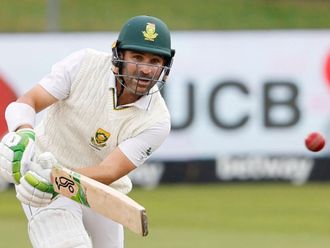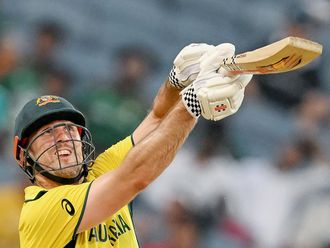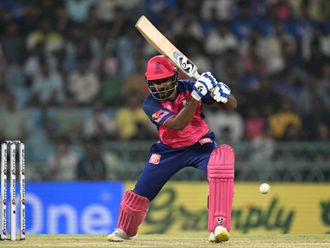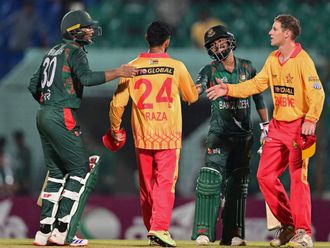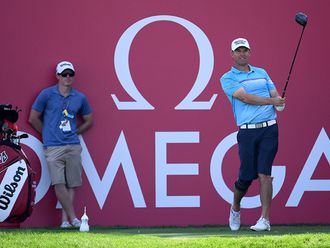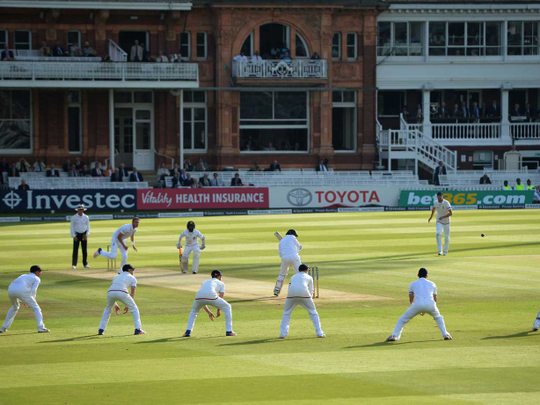
London: Sri Lanka complained to the match referee after an incorrect no-ball call denied them a wicket against England at Lord’s on Sunday, with the tourists even using their national flag as a means of protest.
England opener Alex Hales had made 58 when he was bowled by a Nuwan Pradeep delivery that kept low on the fourth day of the third Test.
But Australian umpire Rod Tucker had already called a no-ball.
Replays suggested paceman Pradeep’s front foot may have been behind the crease but fielding teams are unable to challenge a no-ball call by an umpire and Hales survived.
When batsmen are dismissed, umpires in the middle can and do sometimes ask the TV official to check to see they haven’t missed a no-ball.
But under current International Cricket Council regulations, the third umpire is powerless to intervene in the type of situation that Sri Lanka and Tucker found themselves in on Sunday.
Sri Lanka team manager Charith Senanayake, a former Test opener, and coach Graham Ford approached match referee Andy Pycroft to register their unhappiness at Tucker’s decision.
Meanwhile, the Sri Lanka flag was draped over the tourists’ dressing-room balcony for some 45 minutes in protest at the decision.
Flags traditionally fly above both dressing rooms at Lord’s and the flag on the balcony was eventually removed at the request of Marylebone Cricket Club, the owners of Lord’s.
Hales went on to make 94, with England, 2-0 up in the three-match series, eventually declaring on 233 for seven to set Sri Lanka a target of 362 to win.
“You feel a little down, it is sad,” Sri Lanka Cricket president Thilinga Sumathipala told reporters.
“The management on tour is very sad about that decision. It will be reported to the ICC.”
Asked to explain how the flag protest came about, he added: “It must have been the team to show the management’s feelings on the field.
“It is to say ‘Boys get together, it is not the end of the world, we are still fighting for the match so therefore play for the country.’ It is a symbol.
“It is a mark to say we are not happy with the decision, to show solidarity and fight back.”
Sumathipala said the flag protest was not a sign of disrespect towards Tucker.
“I don’t think any umpire would take any decision deliberately against anybody. All umpires at end of year have certain percentage of mistakes and it is sad it has happened to us.”
‘Helpless’
Several close Decision Review System calls went against Sri Lanka on Sunday and Sumathipala said: “If the decisions are continually happening against you many times then they [the players] will get demoralised.
“The particular wicket that was bowled and the bowler was supposed to have bowled a no ball, it’s not been replayed [immediately], that is something that is not acceptable to the team, they are a little disturbed by that.
“There is no option with an umpire’s mistake to go back, the captain is helpless, the team is helpless.”
In February, a similar incident saw Australia’s Adam Voges make 239 in a Test against New Zealand in Wellington after being reprieved on seven following an incorrectly called no-ball by English umpire Richard Illingworth.
The ICC’s cricket committee has called for a change in the regulations regarding the use of DRS to prevent such incidents occurring in future.
Their proposal is set to be considered by the full ICC board when it next gathers during the global governing body’s annual meeting in Edinburgh from June 27 June to July 2.


